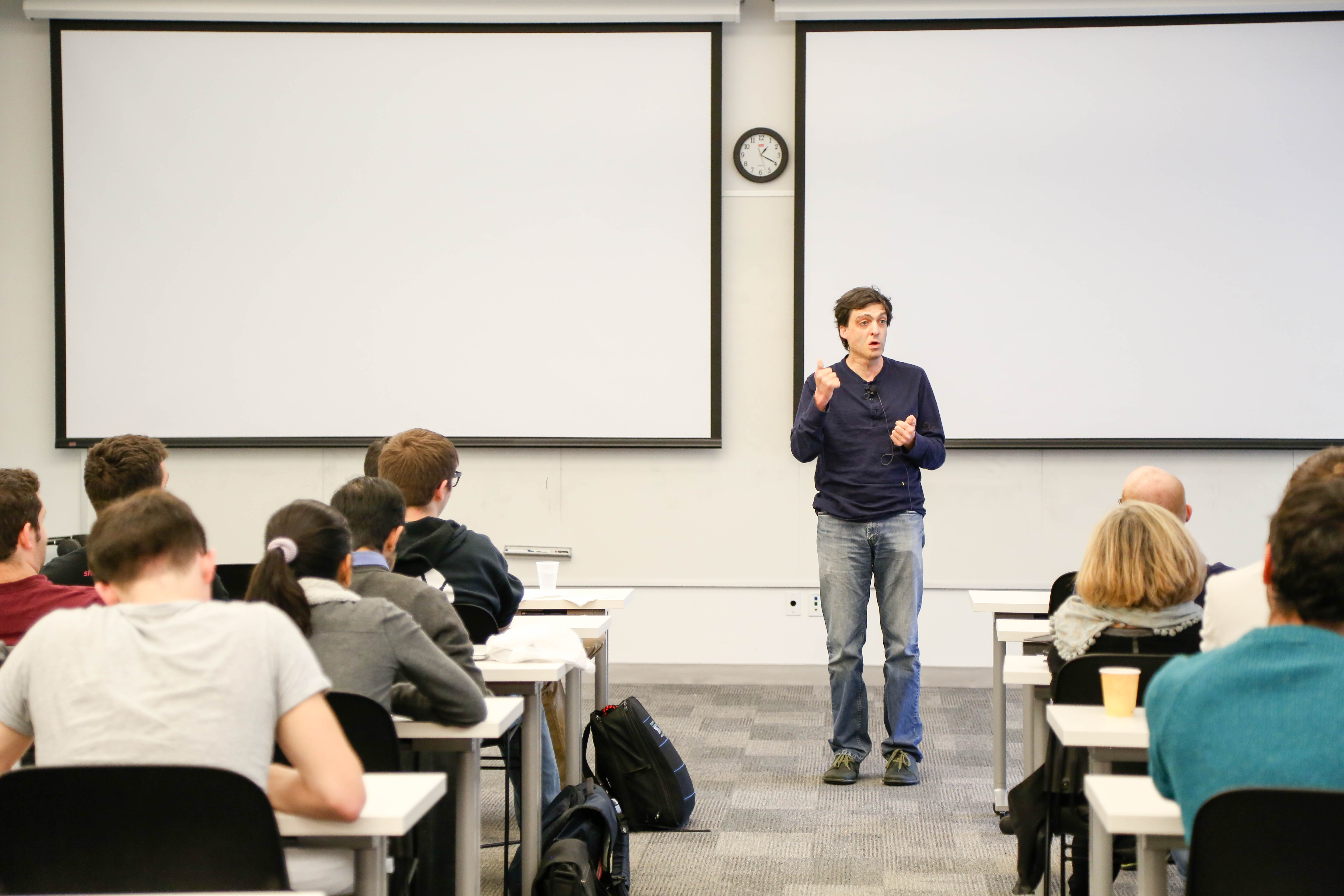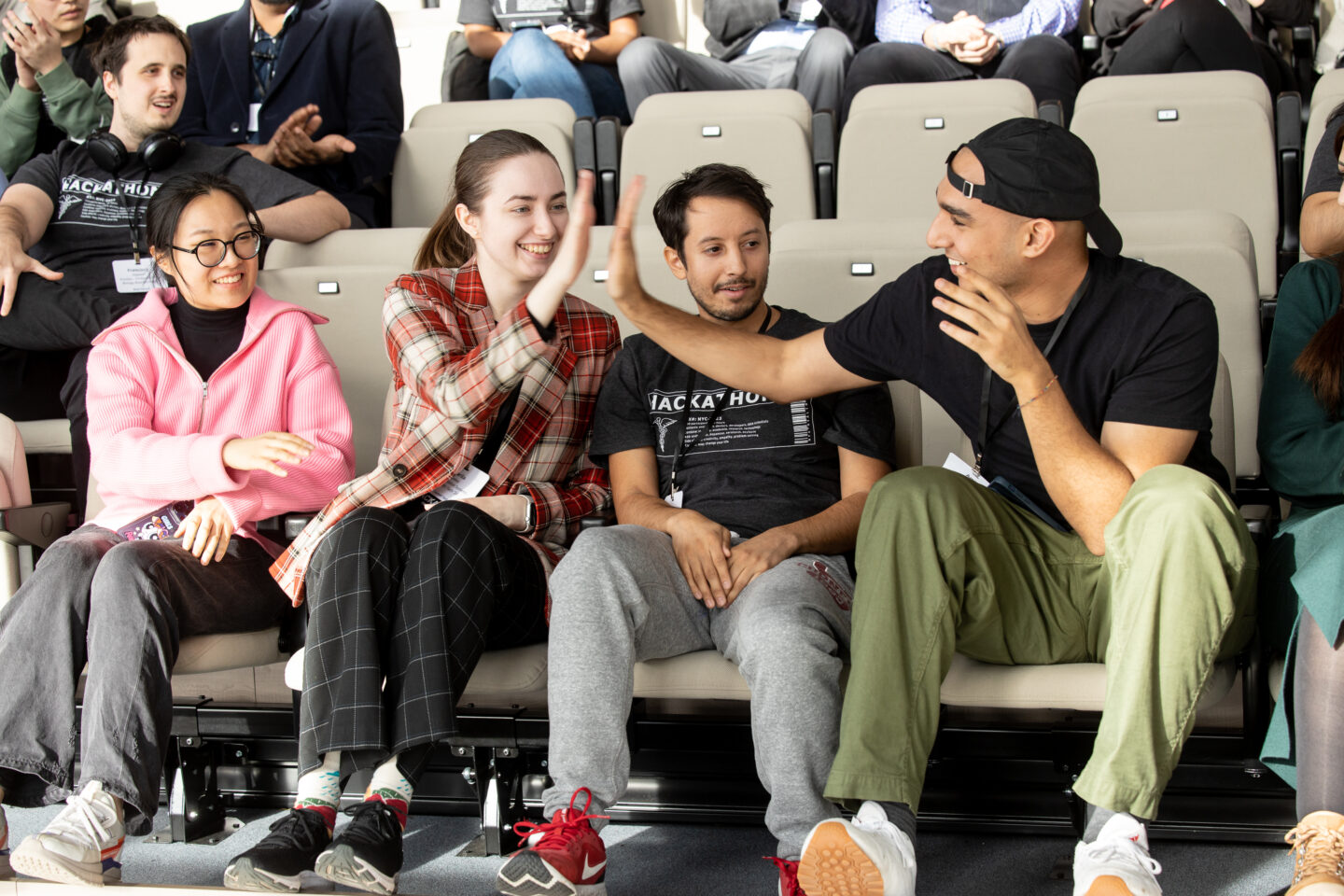3 Scientifically-Backed Strategies to Help You Resist Temptation
Categories

We know that a doughnut is not a well-balanced breakfast. We know that an hour spent scrolling through Facebook could be put to better use. We know those extra 10 minutes of sleep will likely make us late for work.
When it comes to resisting temptation, we have a hard time acting with our long-term interests in mind.
Dan Ariely, professor of behavioral economics at Duke University and founder of The Center for Advanced Hindsight, recently visited Cornell Tech to speak about temptation and overcoming it through self-control.
“The capitalistic system is basically designed to create things that tempt us,” Ariely said. “There is a tremendous fight for our attention and self-control.”
In his talk, Ariely offered three strategies to better resist and manage temptations.
Connect something you don’t want with something you do want
Ariely calls this method reward substitution.
“There are some things that naturally we can’t care about—they’re just too far away,” Ariely said. “But we can create a proxy for that long-term goal that is immediate.”
Using a personal example, Ariely shared his experience taking a routine medication years ago. There’s no natural connection between movies and medication, but Ariely managed to find one. Every Monday, Wednesday and Friday, he would rent a movie from the video store and only allow himself to press play once he took the medication.
By connecting his long-term health goal with his short-term desire to watch movies, Ariely kept up the routine. With all kinds of goals, directly linking an immediate reward with a long-term ambition makes it easier to achieve.

Take precaution to help your future self avoid or ignore temptation
a.k.a The Odysseus Contract
In Homer’s The Odyssey, Odysseus has his men tie him to the mast of the ship and block their ears with wax to protect them from the Siren’s song. Similarly, Ariely explained, we can take measures to prevent ourselves from future temptation.
A common “Odysseus contract” Ariely has observed with his undergrads is having a friend change their Facebook password during finals week or only bringing cash to bars.
“I don’t think we can always expect people to come up with these contracts on their own, but it doesn’t mean that we can’t create ‘Odysseus contracts’ for [others],” Ariely said.
Connect meaning of what you do to a higher purpose
Religions have been doing this since the beginning of time.
“Religions give people very stringent rules for how to behave,” Ariely said. “There’s really not much grayscale in religion. Not only that, religions also connect the meaning of what you do with the higher order.”
To illustrate the concept, Ariely cited a study following Orthodox Jews who smoke. When told not to smoke on a random day of the week, they still craved cigarettes. But on the Sabbath, they reported no nicotine craving because they believed in a “higher order.”
Currently Ariely is researching how to create these higher order beliefs and rituals around exercising.
This battle between temptation and self-control isn’t new and it’s likely won’t get any easier. As technology advances we’re presented with more temptations and more ways to be self-destructive.
“There’s no question that the world in 10 years will be more tempting than what it is now,” Ariely said. “For people interested in technology, the question is: How can we help?”
Media Highlights
Tech Policy Press
Content Moderation, Encryption, and the LawRELATED STORIES




